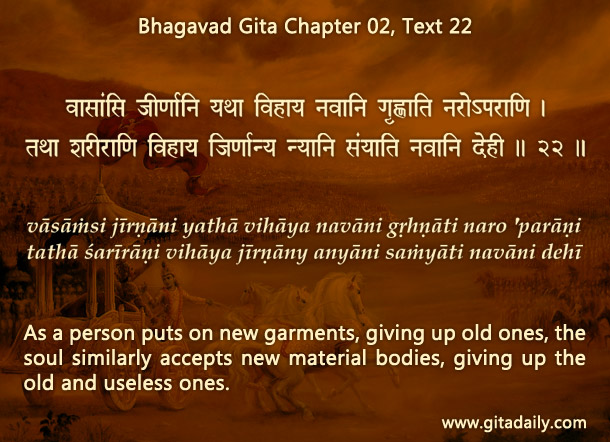Most people dread the prospect of death because they think that it implies losing everything they hold dear and losing their very existence.
Thankfully however, we never lose our existence. Phrased in terms of a grammatical metaphor, death is a comma, not a full stop. When we convey a thought, a full stop signifies the termination of the thought, whereas a comma signifies a transition in it – a transition in perspective, focus or tone. Similarly, death signifies a transition in our existence, not its termination.
The Bhagavad-gita (02.22) explains the nature of this death-time transition through a sartorial metaphor: changing one’s dress. Though the dress often strikes the eye, the person is different from the dress. Similarly, though the body is visible and though we frequently misidentify with it, we are different from it – we are eternal souls. After discarding an old dress and putting on a new one, the person remains the same but looks different. Similarly, at death, we give up our old body and acquire a new body; we remain the same, even if we look entirely different.
As souls, we are meant for an eternal life of love with the all-attractive, all-loving Supreme, Krishna. Unfortunately, being unaware of our spiritual identity, we pursue worldly objects for pleasure and transmigrate from one physical body to another. In human life, we gain the intelligence to transcend our mortality by redirecting our love from worldly things to Krishna.
By practicing bhakti-yoga for redirecting our love, we can glimpse the serenity and ecstasy available in life at the spiritual level. When we fix our vision beyond death on life eternal, we can not only face death without undue trepidation but can also live life without undue distraction. By focusing on our devotional growth, we can find spiritual fulfillment, both here and hereafter.
To know more about this verse, please click on the image
Explanation of article:
Podcast:


Leave A Comment